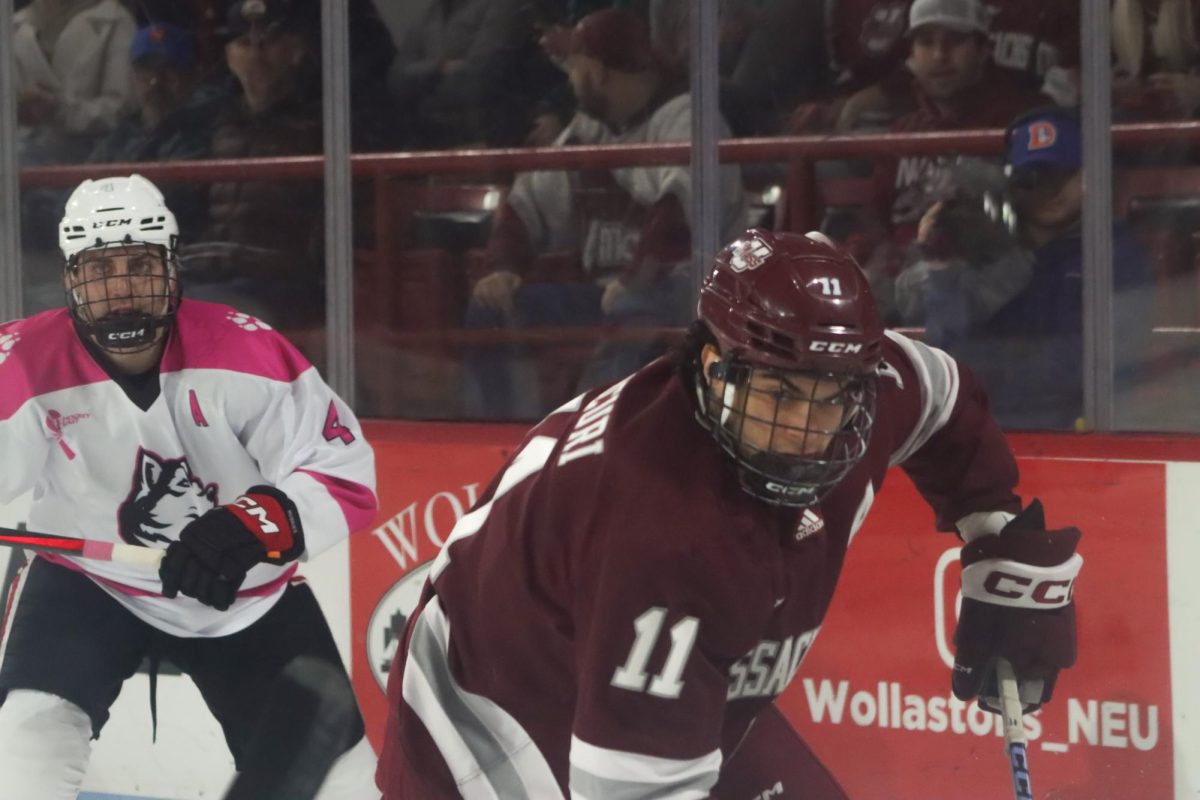
The Common Read Committee at the University of Massachusetts hosted Wes Moore, a Rhodes Scholar, decorated veteran and author of the novel “The Other Wes Moore,” to deliver a keynote address on Sept. 28. The event was held in the Fine Arts Center auditorium at 5 p.m., and commenced with the words of the Associate Provost for Student Success Eric Moschella, who extended a warm welcome to the author and elucidated the importance of the Common Read as a medium to bring students together.
Moore began his speech by expressing how humbled he was that the class of 2021 had commenced its collegiate career with his book. He stressed the importance of interpreting “The Other Wes Moore” correctly. His story, he explained, was not about a “good Wes” versus a “bad Wes.” Rather it was meant to illustrate the thin line between the lives of two versions of himself, and illustrate how quickly society congratulates one and castigates the other without exploring their backgrounds.
Personal decisions, Moore insisted, cannot be isolated from social context. “Before passing judgement on an individual’s decisions, we must also examine the social contexts in which these decisions were made,” he said.
The author recalled his time as a college freshman, where the one question he was asked repeatedly was “what’s your major?” In fact, he was asked this so much so that he began to wonder if this were the most important question of his life.
“It’s been almost thirteen years since I went to college, and no one has asked me this question since,” he said. Moore emphasized the true meaning of a higher education, saying “don’t let your walk up the stage to get a degree be the culmination of your college career.”
He talked about the people whose walls are covered with numerous degrees, but are unable to find a way to make those degrees matter to anyone but themselves. Moore described this as different from the true meaning of higher education.
The important questions that he insisted we should ask students at the end of their college careers are: Who did you choose to fight for? Who did you stand up for when it wasn’t easy or convenient? Who did you stand shoulder-to-shoulder with, when you could have stood alone? He continued to argue that “if the only thing you’ve achieved over these four years is a degree, then you’ve missed the point.”
Moore shared that, in his opinion, the most important part of his book title was the word “other.” He said “society is full of these “others” – those with other homes, other genders, other forms of expression, and all they’re looking for is some empathy instead of judgement.” The author then went on to emphasize the responsibility that we as students hold in championing the cause.
He alleged to the students that they “have the privilege of a voice that will be heard and taken seriously. The question is, what are you going to do with it?” Moore explained that his novel was not just about two kids who grew up in Baltimore, but that “there exist Wes Moore’s in each of our lives.” He said we must examine the decisions made by them, and more importantly, the conditions in which they were made. “If you can take even one person’s story, their background, their social context, and make it accessible to others, you have done something useful with your voice,” the author affirmed.
The event concluded with a question-answer session that was moderated by Dr. Mari Castañeda from the Common Read Committee. Moore responded to all the questions posed by the audience members, and then proceeded to a book-signing event.
Bhavya Pant can be reached at [email protected].



















